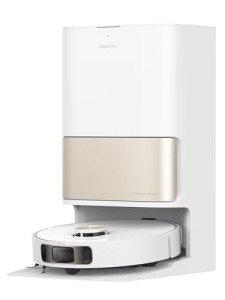Robotic Vacuum Cleaner Comparison: The Future of Home Cleaning
In current years, robotic vacuum cleaner s have transformed the way we maintain tidiness in our homes. With improvements in innovation and the incorporation of expert system, these devices have actually developed from mere novelty items to vital home home appliances. This post offers a thorough comparison of some of the leading robotic vacuum cleaner s on the marketplace, helping customers make informed choices when choosing a model that suits their needs.
Understanding Robotic Vacuum Cleaners
Robotic vacuum cleaners are autonomous machines created to tidy floorings instantly. Geared up with sensing units, they browse around obstacles and change their cleaning paths for optimal effectiveness. The crucial functions that separate different designs include suction power, battery life, app connectivity, navigation innovation, and price.
Key Features to Consider
When comparing robotic vacuum cleaners, possible buyers ought to consider the following aspects:
- Suction Power: Measured in Pascals (Pa), suction power figures out the effectiveness of selecting up dirt and particles.
- Battery Life: The length of time a vacuum can operate before needing a recharge considerably impacts its cleaning performance.
- Navigation Technology: Models may utilize basic random navigation or sophisticated mapping innovations (like LIDAR) that permit them to create a map of the home.
- Smart Features: Connectivity to mobile phone apps or smart home systems can enhance use and control.
- Filter Type: HEPA filters are advised for allergic reaction patients, as they trap irritants and improve air quality.
Comparison of Top Robotic Vacuum Cleaners
Below is a comparison table of a few of the very best robotic vacuum cleaners offered in 2023:
| Model | Suction Power (Pa) | Battery Life (minutes) | Navigation Technology | Smart Features | Price (GBP) |
|---|---|---|---|---|---|
| iRobot Roomba i7+ | 1700 | 75 | Smart mapping | App control, voice command | ₤ 949 |
| Roborock S7 | 2500 | 180 | LIDAR | App control, multi-floor | ₤ 649 |
| Neato D7 | 2000 | 120 | LIDAR | App control, zone cleaning | ₤ 599 |
| Ecovacs Deebot T10 | 3000 | 150 | Smart mapping | App control, space detection | ₤ 799 |
| Shark IQ Robot | 1200 | 90 | Random | App control, self-emptying | ₤ 399 |
Description of the Table
- iRobot Roomba i7+: Known for its robust cleaning capability, it features smart mapping innovation that enables it to designate specific areas for cleaning. Its self-emptying feature is a plus for convenience.
- Roborock S7: This design stands out in suction power and battery life, making it perfect for larger homes. Its LIDAR innovation assists develop an effective cleaning path, and it can vacuum and mop concurrently.
- Neato D7: The D-shape style allows for better corner cleaning, and it includes strong suction power. Its LIDAR navigation allows it to map out cleaning locations properly.
- Ecovacs Deebot T10: Boasting the highest suction power and advanced navigation, this model can deal with multiple floorings efficiently. It's a flexible choice for families with varying floor types.
- Shark IQ Robot: An economical choice that still provides smart functions. Its self-emptying capability and app integration make it a practical choice for those looking for a solid cleaning companion without breaking the bank.
Advantages of Robotic Vacuum Cleaners
Robotic vacuum provide various advantages that add to their rising appeal amongst consumers:
- Time-Saving: Automated cleaning permits users to release up valuable time that can be invested in other activities.
- Convenience: Many models can be arranged by means of apps to clean up at particular times, lowering manual effort.
- Availability: They can reach under furnishings and in tight areas where standard vacuums might struggle.
- Daily Maintenance: Regular use of robotic vacuums can assist preserve a regularly clean environment, promoting much better overall home health.
FAQs About Robotic Vacuum Cleaners
1. How frequently should robotic vacuum cleaner comparison run my robotic vacuum?
It is suggested to run the robotic vacuum at least 2-3 times a week to keep cleanliness, though day-to-day usage can be helpful, especially in homes with pets or high foot traffic.
2. Do robotic vacuums work on carpets?
Yes, lots of robotic vacuums are developed to work on carpets, however effectiveness might vary based on the design's suction power and brush type. Try to find models specifically discussed as reliable for carpets.
3. Can robotic vacuums clean family pet hair?
Many robotic vacuums can effectively choose up pet hair, but those with strong suction and tangle-free brush designs are particularly well-suited for this task.
4. How do I keep my robotic vacuum?
Regular maintenance includes cleaning the brushes and sensors, emptying the dustbin, and sometimes changing filters to guarantee ideal efficiency.
5. Are robotic vacuums worth the financial investment?
While they tend to be more expensive than traditional vacuums, the benefit, effectiveness, and time-saving elements make them a deserving investment for lots of families.
The market for robotic vacuum continues to broaden as technology evolves, using customers a range of choices to match various cleaning requirements and budget plans. By thoroughly considering features such as suction power, battery life, and smart capabilities, users can select a design that lines up with their way of life. Whether for benefit, ease of usage, or remarkable cleaning efficiency, robotic vacuums are certainly improving the future of home cleaning.

